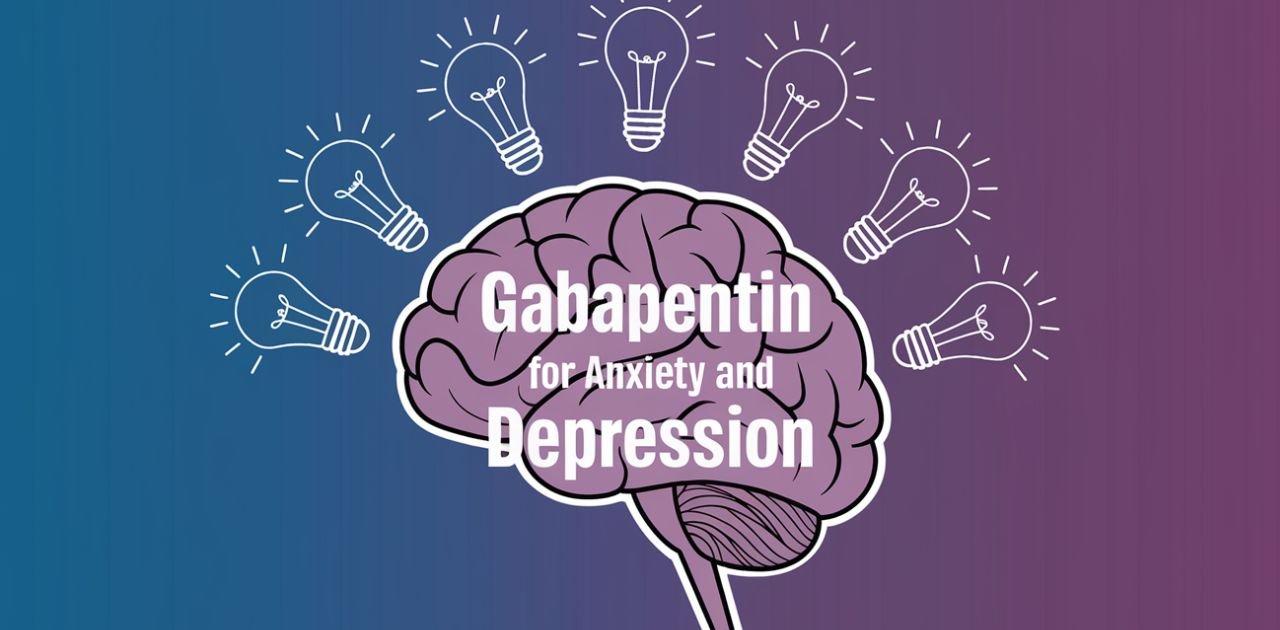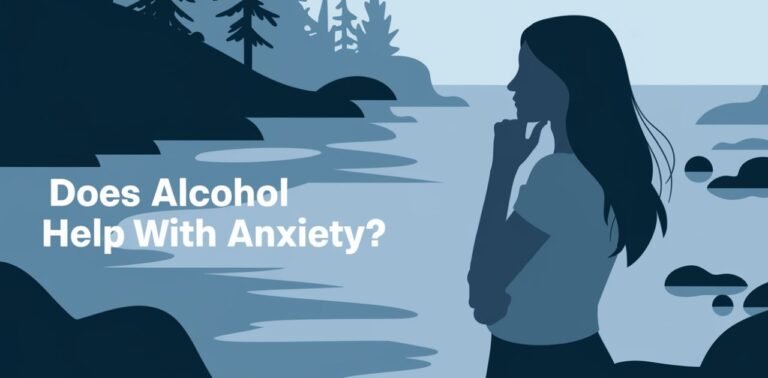“Gabapentin for Anxiety and Depression 08 best Uses, Benefits, and Risks”

Anxiety together with depression creates interruptions to normal daily routines. The difficulties people face from their associated symptoms interfere with their employment responsibilities and social connections as well as psychological health status. Traditional medication treatments fail to help certain individuals which causes their struggling behavior to intensify their mental health issues. Doctors sometimes use Gabapentin which started as antiseizure and nerve pain medication as a treatment for anxiety and depression in Gabapentin for Anxiety
The drug provides temporary relief to some patients even though the FDA has not authorized it for these particular conditions. Gabapentin presents potential dangers together with negative effects and risk of dependency. The decision to take gabapentin requires doctor consultation. The knowledge of what gabapentin offers and what dangers it presents will assist users in choosing proper mental health treatments wisely.
What Is Gabapentin?
The pharmaceutical substance Gabapentin exists for the medical treatment of nerves and seizures. Gabapentin functions to control irregular brain nerve signal activity. The primary purpose of Gabapentin usage by doctors is to manage nerve-related discomfort.
Definition and Medical Uses
Gabapentin functions as a member of anticonvulsant drug groups. It was first approved in 1993. The medication helps manage nerve pain which occurs because of shingles and diabetes.
The drug helps epileptic patients to maintain seizure control. Medical practitioners choose Gabapentin to treat both restless leg syndrome and hot flashes symptoms.
FDA-Approved Uses
Epilepsy along with postherpetic neuralgia stands as medical conditions for which the U.S. Food and Drug Administration (FDA) authorized Gabapentin usage. The medication is available for medical use though FDA has not granted approval for treating depression or anxiety although doctors do use it to treat these conditions outside the designated scope. You must always consult with your health provider before starting treatment with this drug.
Gabapentin for Anxiety
Why Gabapentin Is Used for Anxiety
Doctors occasionally prescribe Gabapentin for anxiety treatment but the drug lacks official medical authorization for this purpose. Doctors use Gabapentin under special circumstances by writing an off-label prescription for patients who do not manage their anxiety with standard medications.
Medical experts prescribe Gabapentin to treat both social anxiety and generalized anxiety disorder (GAD) and panic attacks although it does not have official approval for this use. The medication becomes an option for individuals when benzodiazepines remain unavailable or unfit for their use. The doctor should be the first point of contact when deciding to use Gabapentin for anxiety treatment.
Effectiveness of Gabapentin for Anxiety
Scientific research indicates that Gabapentin shows effectiveness in treating anxiety symptoms. Scientific investigations from 1999 discovered beneficial effects of Gabapentin for combating social anxiety disorders.
A number of patients declare that this medication delivers benefits by reducing their anxiety while improving their sleep patterns. The available research about Gabapentin’s effectiveness remains limited considering that it produces varied results among patients. Long-term advantages need to be researched through more studies. You should discuss with your doctor both the risks and advantages of taking Gabapentin when you are experiencing anxiety.
Gabapentin vs. Traditional Anxiety Medications
Gabapentin functions differently from Prozac-type SSRIs or medication group Xanax. Gabapentin stands apart from benzodiazepines since it does not cause addiction which makes it an advantageous choice for select patients.
Research shows this treatment cannot always achieve the same level of effectiveness as other similar medicines. Medical professionals prefer to prescribe SSRIs when treating patients for long-term anxiety. Gabapentin functions as an alternative choice of treatment for cases where prior medications have been unsuccessful or generated unwanted side effects. A person should make their choice based on their health condition and the medical input from their doctor.
Gabapentin for Depression
Can Gabapentin Help with Depression?
Doctors occasionally prescribe Gabapentin for anxiety treatment but the drug lacks official medical authorization for this purpose. Doctors use Gabapentin under special circumstances by writing an off-label prescription for patients who do not manage their anxiety with standard medications.
Medical experts prescribe Gabapentin to treat both social anxiety and generalized anxiety disorder (GAD) and panic attacks although it does not have official approval for this use. The medication becomes an option for individuals when benzodiazepines remain unavailable or unfit for their use. The doctor should be the first point of contact when deciding to use Gabapentin for anxiety treatment.
Gabapentin and Other Depression Treatments
Scientific research indicates that Gabapentin shows effectiveness in treating anxiety symptoms. Scientific investigations from 1999 discovered beneficial effects of Gabapentin for combating social anxiety disorders.
A number of patients declare that this medication delivers benefits by reducing their anxiety while improving their sleep patterns. The available research about Gabapentin’s effectiveness remains limited considering that it produces varied results among patients. Long-term advantages need to be researched through more studies. You should discuss with your doctor both the risks and advantages of taking Gabapentin when you are experiencing anxiety.
Risks and Side Effects
Common Side Effects of Gabapentin
Gabapentin functions differently from Prozac-type SSRIs or medication group Xanax. Gabapentin stands apart from benzodiazepines since it does not cause addiction which makes it an advantageous choice for select patients.
Research shows this treatment cannot always achieve the same level of effectiveness as other similar medicines. Medical professionals prefer to prescribe SSRIs when treating patients for long-term anxiety. Gabapentin functions as an alternative choice of treatment for cases where prior medications have been unsuccessful or generated unwanted side effects. A person should make their choice based on their health condition and the medical input from their doctor.
Potential Risks of Long-Term Use
The long-term usage of Gabapentin produces dependency symptoms in particular patients. The abrupt termination of Gabapentin usage typically results in withdrawal symptoms which might include anxiety alongside sweating and feeling nauseated.
The misuse of Gabapentin occurs mostly during simultaneous drug consumption. Meanwhile the drug retains lower addiction levels when compared to opioids so additional precaution is essential. Your doctor must lead your usage of Gabapentin which means you should never discontinue usage suddenly until receiving medical authorization.
Warnings and Contraindications
Gabapentin creates risks for particular groups of patients. Individuals with kidney disease or breathing problems along with those who have substance abuse backgrounds need to exercise caution when using Gabapentin.
The drug produces reactions with other medications specifically with opioids and alcohol. Both pregnant and breastfeeding women need medical advice before using Gabapentin in their treatment. Some patients develop suicidal thoughts together with mood changes when taking Gabapentin although this phenomenon remains exceptionally rare. You must always notify your doctor about your healthcare conditions before starting this prescription.
How to Use Gabapentin Safely

Dosage Guidelines for Anxiety and Depression
The doctor will prescribe the right Gabapentin dosage based on your condition. For anxiety or depression, the starting dose is usually low and increases gradually. This helps your body adjust. Always follow the doctor’s instructions and never change your dose without consulting them. Never take more than prescribed to avoid serious side effects.
Tips for Managing Side Effects
To reduce drowsiness or dizziness, take Gabapentin with food or at bedtime. Avoid alcohol and driving while you are adjusting to the medication. Stay hydrated and rest when feeling tired. If side effects become severe, contact your doctor. Always take Gabapentin exactly as prescribed to manage side effects effectively and safely.
Alternative Treatments for Anxiety and Depression
Other Medications for Anxiety and Depression
Common medications for anxiety and depression include SSRIs (like Prozac) and SNRIs (like Effexor). These drugs help balance mood-regulating chemicals in the brain. Benzodiazepines, like Xanax, are also used for short-term relief. Gabapentin may not be the best choice if these medications work better for you. Always discuss your options with a doctor to find the best treatment.
Natural Remedies and Lifestyle Changes
In addition to medication, lifestyle changes can help manage anxiety and depression. Regular exercise, a healthy diet, and good sleep improve mood and reduce stress. Mindfulness, yoga, and meditation also help calm the mind. Some people find relief with supplements like omega-3 fatty acids or valerian root. Always talk to your doctor before trying any new treatments.
Conclusion
Gabapentin can help manage anxiety and depression, especially for people who do not respond well to other treatments. It is often used off-label for these conditions and can provide relief for some individuals. However, it is not the first-choice medication, and its effectiveness varies. It is important to consult with a doctor before using Gabapentin to ensure it is the right option for you. Always follow medical advice and be aware of potential side effects.






